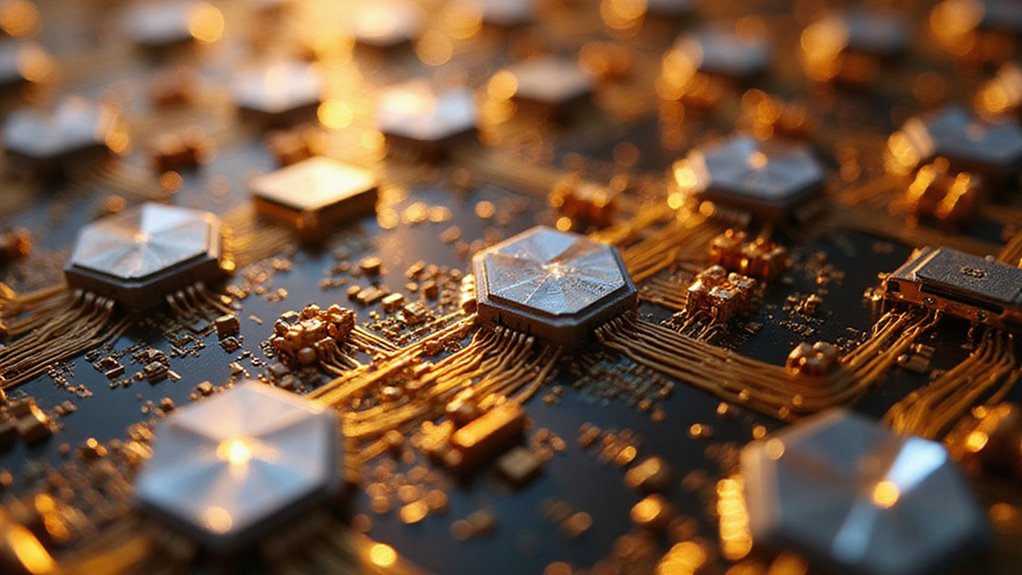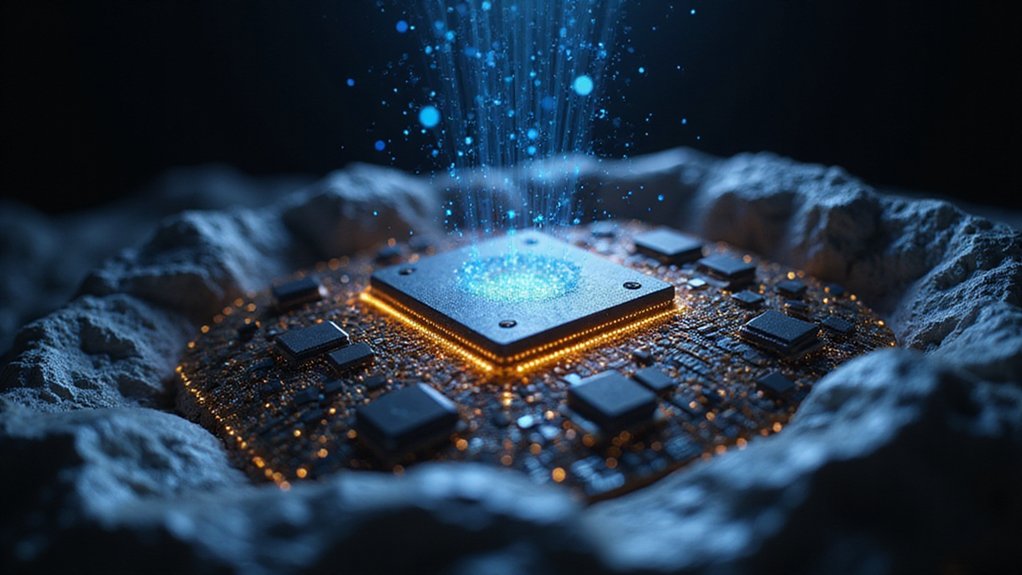While the cryptocurrency industry has weathered countless technological fads and speculative bubbles, the current convergence of artificial intelligence and blockchain technology represents something fundamentally different—a symbiotic relationship that addresses longstanding inefficiencies rather than merely adding another layer of complexity to an already convoluted ecosystem.
The integration manifests most prominently in transaction processing optimization, where AI algorithms reduce latency and operational costs—two persistent thorns in blockchain’s side that have prevented mainstream adoption despite years of evangelical proclamations.
Machine learning models continuously monitor data integrity, detecting anomalies with remarkable precision while maintaining the transparency that blockchain purists demand. This isn’t merely theoretical; real-time fraud detection systems now identify irregular transaction patterns before they can compromise network security, a development that would have seemed impossibly sophisticated just five years ago.
Machine learning now detects blockchain anomalies with unprecedented precision, delivering the fraud prevention sophistication that seemed impossible just years ago.
Smart contracts, previously limited to relatively simple conditional logic, have evolved into sophisticated automated systems capable of self-execution based on complex parameters. AI-driven contract management supports intricate financial and legal data handling, reducing processing times and human errors that plagued early decentralized applications.
The automation extends beyond individual contracts to entire DeFi platforms, where AI optimization tackles the computational complexity that previously made many operations prohibitively expensive. Index tokens like DEFI5 demonstrate how curated baskets of top-performing DeFi assets can simplify investment decisions while maintaining exposure to the sector’s growth potential.
Market participants are responding predictably to these developments. Token Metrics ($TMAI) has established itself as a leader in AI-powered trading analytics, offering buy/sell signals and portfolio tools that actually function as advertised (a invigorating change in an industry known for overpromising).
Meanwhile, projects like Kaito AI ($KAITO), Cookie.fun ($COOKIE), and Arkham Intelligence ($ARKM) are gaining traction by delivering real-time market insights and sentiment analysis—tools that traders have desperately needed but rarely received in usable formats. These platforms leverage AI algorithms for sophisticated data analysis and prediction modeling, enabling more accurate market forecasting than traditional methods.
Perhaps most intriguingly, AI-powered altcoins like Dawgz AI ($DAGZ) demonstrate growing investor interest in community-driven projects that combine artificial intelligence with cryptocurrency mechanics.
These tokens represent more than speculative vehicles; they embody a fundamental shift toward utility-driven blockchain applications. The integration with large language models enables advanced chatbot functionality for market predictions and user queries, transforming how investors interact with cryptocurrency ecosystems. Networks like Kaanch showcase this evolution by processing 1.4 million transactions per second while supporting AI-driven solutions that unlock new possibilities for cross-chain interoperability and asset tokenization.
This evolution suggests that AI’s blockchain infusion may finally deliver on the revolutionary promises that have long eluded the industry.







